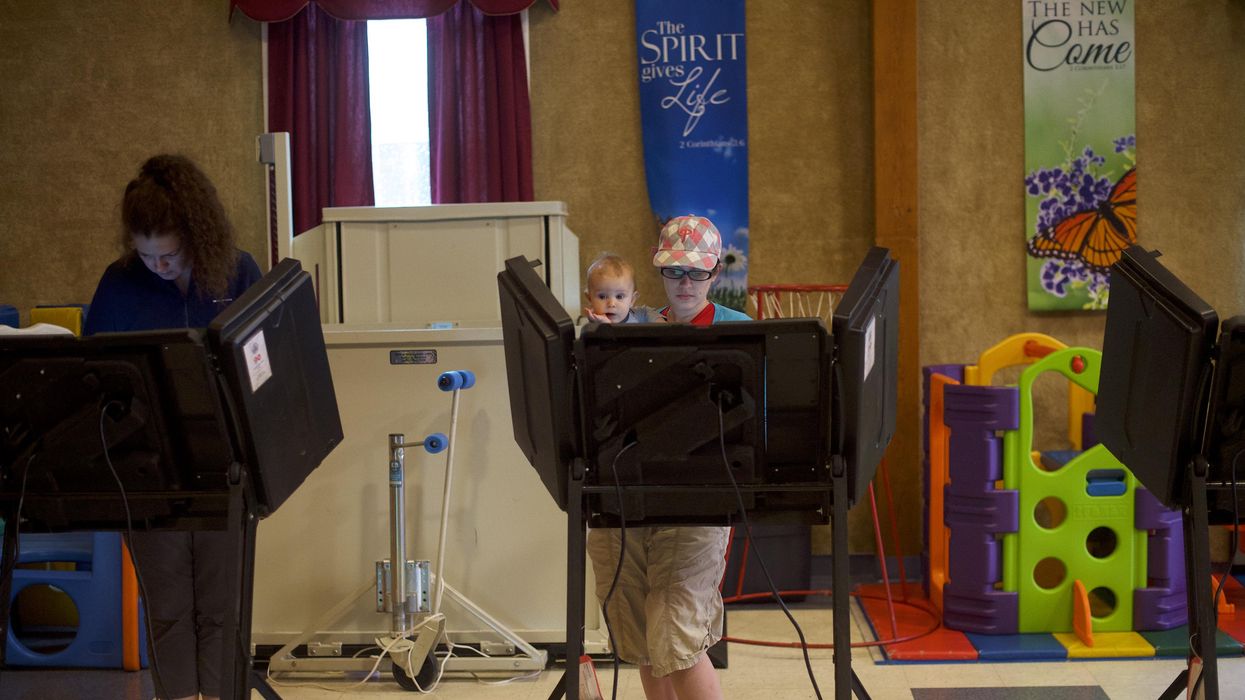Molineaux is co-publisher of The Fulcrum and president/CEO of the Bridge Alliance Education Fund.
I call our current political environment “Primaryland.” What happens in the primaries will determine our direction as a nation. The general election merely makes that direction official. This is why we all need to plan our trip to Primaryland in the 2022 election cycle. Primaryland is less fun than Disneyland and more difficult to navigate, but it’s our responsibility to engage. Our children are depending on all of us to stand up for democracy. This year, it means voting in the primaries.
In modern usage, being primaried has meant that an extreme candidate will run in the party primary to knock out a moderate elected official, usually someone who has cooperated across party lines. And this phenomenon has increased the gridlock, toxic polarization and separate realities between the two political parties. As survival instincts among elected officials kick in, they move to more extreme views and are less willing to compromise issue positions. Why? To keep winning re-election. To be re-elected, they have to survive their party primary. Fewer than 20 percent of eligible voters in 2018 voted in the primaries, while everyone else waited for the general election. If we skip the primaries this season, we limit our choices in the general election.
Now add in redistricting and the polarization is further increased. Following the intentionally disrupted 2020 census, every state has gone through a redistricting (or gerrymandering) process. The number of competitive congressional elections has decreased from 14 percent to 10 percent. If you live in a non-competitive district, like me, the real race is in the primary. Remember, 90 percent of congressional districts have been gerrymandered to be “safe” for one party or the other. This is not an exercise of whimsical fancy. It’s math.
The action for 2022 is in the primaries. The exhausted majority needs to show up.
Because I live in a safe Democratic district, I will have the most influence in the Democratic primary. If you live in a safe Republican district, the primary is where the choice will be made for who represents you in Congress.
I want my choice to be for the better candidate — not the lesser of two evils, as chosen by the more extreme primary voters. I’ve been an independent voter since I was 18, and this year will be the second time I have declared a party to vote in the primary. The first time was in the 2016 presidential primary. And I’m mad as hell that I have to register with a party to have my vote counted where it matters most.
It takes work for citizens to figure out when primary elections are being held (they are different for every state) and when to change our registration (deadlines vary by state, too). For instance, here in Maryland, I have 21 days before the primary election on July 19, 2022, to affiliate with a party and have my vote counted for Congress. On top of that, I have to submit an original signature, meaning a visit to the county clerk or mailing in the updated registration form — to arrive three weeks before primary day. Every state has its own laws, so you have to put in the work.
Of course, it’s not easy to find the data, change your registration and then change it back. But it is our duty and responsibility to be the most effective voters we can be. And that means taking the extra time, researching all the steps and verifying registration status, per state instructions. It’s the fastest way to stop the crazy in our politics.
There are so many barriers to voting, we will need dogged determination to make it through this election cycle. Will you join me in this dogged level of determination?
State by state primary dates are listed here.
State by state registration deadlines are listed here.
Please note that many registration changes will require an original signature. Allow time to walk or mail it in. Then continue to check online to ensure your voter registration has been updated. Verify, verify, verify.
No one wants to take the time out of our busy schedules with our jobs, families and other obligations. Think of it this way: Voting in the primaries is like buying insurance. We don’t want to pay for it, and hope we never have to use it. But when we pool our resources and need help, insurance is our best friend. Our nation needs us to pay the premiums by showing up in the primary elections.
Think of the cost if we do not. Our government is on life support. Our politics are poisoned. Will our inaction put democracy in hospice? Or might we start a rehabilitation process that only citizens can provide?
Long term, I’ll keep working to open primaries and better voting processes like ranked-choice or approval voting. But for now, we have a flawed system that can be navigated with tenacity. If democracy is important to you, I hope you’ll vote in the primary. It’s our best hope.





















